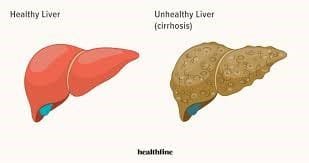Liver Disease: Symptoms, Liver Function Tests, and Treatment
Liver disease is a significant health concern worldwide, affecting millions of individuals. The liver plays a crucial role in various bodily functions, including detoxification, metabolism, and digestion. Recognizing the symptoms early, understanding liver function tests, and knowing the treatment options are essential for managing liver health effectively.
Symptoms of Liver Disease
Early detection of liver disease is vital for effective treatment. Common symptoms include:
- Fatigue: One of the most prevalent signs, fatigue may indicate liver dysfunction.
- Jaundice: A yellowing of the skin and eyes, jaundice occurs when the liver fails to process bilirubin properly.
- Abdominal Pain: Discomfort or pain in the upper right abdomen can signal liver problems.
- Nausea and Vomiting: These symptoms may arise as the liver struggles to detoxify the body.
- Dark Urine and Pale Stool: Changes in urine and stool color can indicate liver issues.
- Swelling: Fluid retention in the abdomen (ascites) and legs can occur with liver disease.
- Itchy Skin: Cholestasis, a condition where bile flow is obstructed, can cause intense itching.
If you experience any of these symptoms, it’s crucial to consult a healthcare professional for evaluation.
Liver Function Tests
Liver function tests (LFTs) are blood tests that help assess the liver’s health. Key components measured include:
- Alanine Aminotransferase (ALT): Elevated levels can indicate liver cell damage.
- Aspartate Aminotransferase (AST): This enzyme is released when the liver is injured.
- Alkaline Phosphatase (ALP): High levels may suggest bile duct obstruction or liver disease.
- Bilirubin: Increased bilirubin levels can lead to jaundice and indicate liver dysfunction.
- Albumin: Low levels may indicate chronic liver disease, as the liver produces this protein.
- Prothrombin Time (PT): Prolonged PT can suggest impaired liver function.
These tests provide essential insights into the liver’s condition and can guide further diagnostic procedures.
Treatment Options for Liver Disease
The treatment for liver disease varies depending on the underlying cause, severity, and type of liver condition. Common treatment options include:
- Lifestyle Changes:
- Diet: A balanced diet low in fat and high in fruits and vegetables can support liver health.
- Exercise: Regular physical activity helps maintain a healthy weight and reduces liver fat.
- Alcohol Reduction: Limiting or abstaining from alcohol is crucial for those with liver disease.
- Medications: Depending on the type of liver disease, medications may be prescribed to manage symptoms or treat the underlying condition. For example, antiviral drugs can be used for hepatitis, while corticosteroids may help with autoimmune liver diseases.
- Surgery: In some cases, surgical intervention may be necessary, such as for tumors or severe liver damage. Liver transplantation is also an option for patients with end-stage liver disease.
- Regular Monitoring: Regular check-ups and monitoring of liver function tests are essential for managing chronic liver disease and preventing complications.
Conclusion
Understanding liver disease, including its symptoms, the significance of liver function tests, and available treatment options, is crucial for maintaining liver health. If you suspect liver problems, early consultation with a healthcare provider can lead to timely intervention and better health outcomes. Remember, your liver is vital for your overall well-being—take care of it!
For further information or personalized advice, consider reaching out to a healthcare professional.
Thanks for visiting Gymbag4u.com
You may also love reading our few other articles. https://gymbag4u.com/gerd-safe-foods-your-comprehensive-guide-to-eating-well/ and https://gymbag4u.com/cheese-curd-benefits-uses-and-a-simple-recipe/ and https://gymbag4u.com/bursting-7-popular-myths-of-body-building/
